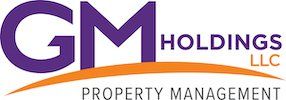5 Ways to Prepare Your Home For Winter
1. Check Your Heater
Having a reliable source of heat in your home is absolutely essential in the chilly winter months. You will not want to be stuck without heat while waiting for a repairman come January, so it is important that you check up on your heater before the weather starts cooling down. Save yourself the headache by checking for leaks and other issues during the early fall season.
If you do find anything out of the ordinary with your unit, you’ll be able to nip it in the bud early on and rest assured that your heater is up and running come winter. Heaters typically last between 10 and 20 years, and the best way to keep your appliances working for the long run is keeping up with routine maintenance.
2. Examine the House for Infestations
Rodents and other critters get cold during the winter season too and will want to find somewhere warm to wait it out. Regularly doing a simple sweep of your house in areas you do not frequent often (attics, crawl spaces, unfinished basements) will help you spot any signs of an infestation early. Leaving an infestation untreated for too long will not only make the infestation worse, but it can also create new problems and damages.
You can prevent rodents from coming into your home by using mesh screens to block your vents — this creates an extra layer of protection between your home and the outdoors! Another way to inhibit these critters is to check for holes and other possible entry points in and around the outside of your home and fill them. Mice and rats are able to collapse their bodies to fit into extremely small holes and openings, so be diligent and fill any holes that rodents could potentially fit through.
Rodent infestations are not only unhygienic and unsafe but can run up a hefty tab of repairs if ignored. Taking care of an infestation early is the best way to minimize the damages and prevent future pest control problems.
3. Protect Outdoor Furniture
Outdoor furniture is a great addition to your home during the warm season, but the harsh conditions of the colder months can cause it damage! Storing your outdoor furniture in the garage or in a spare room when not in use will help elongate its life.
If your home lacks adequate storage space, you can protect your furniture by investing in waterproof coverings that protect it from the ice and snow. An added bonus to this method is that these coverings can also be used to protect your furniture during summer rainstorms, without the hassle of moving it inside. This investment will keep your furniture looking great year after year.
4. Check Fire and Carbon Monoxide Detectors
As a homeowner, your most important responsibility is maintaining the safety of your home for you and your family. The first step to preventing in-home disasters is to make sure that you have working smoke alarms and carbon monoxide detectors throughout your home.
While checking and testing your fire and carbon monoxide detectors should be done on a regular basis year-round, it is especially important going into the winter seasons. According to the
National Fire Protection Association (NFPA), home fires occur more often in the winter than any other season. Heating, holiday decorations, candles, and winter storms can all contribute to this problem.
Checking your detectors is easy and simple. Every alarm is different but a quick search of your smoke detector’s model number will usually lead to a tutorial on how to check it. Smoke and carbon monoxide detectors are easily and inexpensively replaced if not working properly. Replacing a faulty smoke or carbon monoxide detector ASAP is essential for maintaining the safety of your home. It is also a good idea to keep extra batteries on hand for these alarms whenever they need to be changed. Checking your smoke and carbon monoxide detectors regularly will help you rest assured that you and your family are protected if an emergency occurs.
5. Check for Drafts
Cracks and openings around your windows and doors are a lot more than just a cosmetic issue — they create cool drafts that let the heat from your home out. Depending on their size and location, these cracks can be a huge energy waster.
The easiest way to fix and prevent these drafts is to replace old weatherstrips around doors and windows. Weatherstrips wear down over time and create small cracks in window and door frames. Routinely checking the weatherstrips around windows and doors in your home will help you spot potential energy-sucking drafts before the cold winter months.





